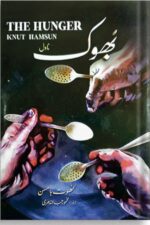Knut Hamsun – Nobel Prize-Winning Norwegian Novelist
Knut Hamsun was a celebrated Norwegian author, poet, and Nobel Prize winner in Literature, best known for his novels Hunger, Growth of the Soil, and Mysteries. Hamsun’s works are renowned for their deep psychological insight, vivid descriptions of nature, and exploration of human emotions.
Background and Journey
Born in 1859 in Lom, Norway, Knut Hamsun grew up in poverty, which deeply influenced his literary perspective. His early life was marked by struggles and wanderings, including time spent in the United States, where he experienced both hardship and inspiration.
Hamsun’s breakthrough came with his novel Hunger, a psychological masterpiece that explores the inner turmoil of a struggling writer. His writing style, characterized by a focus on human psychology and nature, became a significant influence on 20th-century literature.
Notable Books by Knut Hamsun
Hunger One of Hamsun’s most famous works, Hunger is a groundbreaking psychological novel that explores the thoughts and struggles of a young writer facing extreme poverty and isolation.
Growth of the Soil This novel earned Hamsun the Nobel Prize in Literature in 1920. It is a powerful story celebrating the simple, rural life and humanity’s connection with nature.
Mysteries A complex novel that explores the enigmatic and unpredictable nature of human existence, featuring a mysterious protagonist who profoundly impacts a small community.
Knut Hamsun’s Core Themes
- The complexity of human psychology
- Nature’s profound influence on human life
- Isolation and existential struggle
- Critique of modernity and urban life
Popular Work and Influence
Hamsun’s novels have left an indelible mark on world literature, influencing renowned authors like Franz Kafka, Thomas Mann, and Ernest Hemingway. Despite his controversial political views later in life, his literary genius remains widely acknowledged.
Related Topics & Genres
- Psychological Fiction
- Norwegian Literature
- Naturalism
- Existentialism
- Literary Modernism

